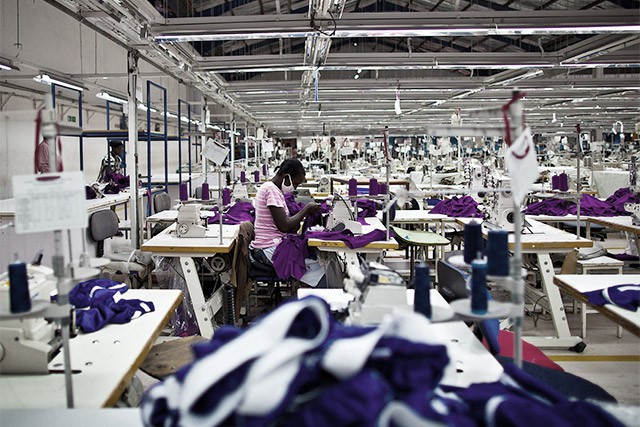PUBLISHED:| ALAN TONELSON
SOURCE:EQUITIES.COM
Renewal of America’s trade agreement with sub-Saharan Africa isn’t the single biggest determinant of the fate of fast track authority in Congress this week, but it’s certainly in the mix.
And the enormous popularity it’s enjoyed even among lawmakers generally opposed to current trade policies speaks volumes about how sloppily Washington as a whole develops trade agreements, and how the results can fail even intended foreign beneficiaries.
The Africa trade deal – created by the African Growth and Opportunity Act (AGOA) – is intended to promote economic progress on the continent by opening the U.S. market wide to its exports. Even though African countries aren’t required to reciprocate, the measure seems worthwhile, as the continent’s own purchasing power is meager at best, and its non-oil sales to the United States are miniscule as well.
But since AGOA went into effect in 2001, even supporters in academe, like Harvard University economist Robert Z. Lawrence have called its growth-inducing effects in Africa “quite disappointing.”
And the reasons stem from two major and related U.S. trade policy mistakes that could be easily corrected, but that remain in effect mainly because Washington has cared much more about pretending to help the continent rather than seriously addressing its problems.
The first fatal flaw has to do with AGOA’s “rule of origin” provisions, which principally affect the African apparel production and shipments.
Developing strong apparel industries is crucial to the development hopes of the AGOA countries, because as a labor-intensive manufacturing sector, clothing historically has served as a “starter” industry for developing nations seeking both higher growth and higher incomes. And the hope clearly was that, once competitive local garment manufacturing had been established, sub-Saharan Africa would be able to attract the kind of investment needed to move to from relatively simple assembly to the next stage up the industrialization ladder – fabric and other input production.
Indeed, the current lack of meaningful fabric or yarn manufacturing in most of the AGOA countries to begin with led Washington to permit them to export on a duty-free basis to the United States garments made largely of foreign-produced fabric – both from the United States and from third countries.
In its first few years, AGOA did stimulate strongly growing African apparel shipments to the United States. But progress came to an abrupt halt in the middle of the last decade, The quality failed to improve – in particular, AGOA fostered almost no fabric production – because most of the non-U.S. providers of fabric for African-assembled garments showed almost no interest in its encouragement. So AGOA apparel sales to Americans still largely consist of fabric produced outside Africa, generally in Asia – including China.
Consequently, Africans have remained stuck in knitting and sewing work, which adds relatively little value to their economies. But even the growth of shipments from Africa to the United States has slowed, and that owes to Washington’s second major trade policy mistake – its insistence that a global system of quotas for third world apparel exports be abolished as part of the Uruguay Round world trade liberalization agreement.
As I wrote in this 2013 article, this Multifiber Arrangement (MFA) was widely criticized as selfish protectionism on the part of the high-income countries that used it to regulate foreign market access for textiles and clothing.
But it also gave invaluable opportunities to the world’s least developed countries to establish niches – and indeed growing niches – in this business, mainly by limiting imports from more advanced developing countries, like Taiwan, Korea, China, and even India. And since AGOA’s provisions remain largely unchanged, most of its economic development benefits will continue flowing to countries that need them much less.
And in a final, especially cruel, irony, avowed friends of Africa who vote for President Obama’s proposed Pacific Rim trade deal will only wind up putting added pressure on the continent.
For one of the biggest expected results of this Trans-Pacific Partnership (TPP) will be to supercharge U.S. apparel imports from hyper-competitive – and super low-wage and anti-union – Vietnam.
So, if Congress – and the Obama administration – really wanted to help sub-Saharan Africa, they would push the World Trade Organization to restore the MFA or at least reestablish a quota system of its own, and they would rethink the TPP.
That neither proposal is on the table in Washington strongly indicates that, when it comes to using U.S. trade policy to aiding developing countries, American leaders are much more interested in feeling good than in doing good. And can the same president and legislators who have so thoroughly neglected crucial AGOA-related details really be reasonably expected to produce a TPP that benefits America?
